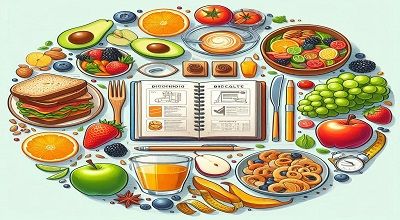Dietary Patterns of a Successful Educator
To discuss the “7 Dietary Patterns of a Successful Educator,” we need to consider that there’s no direct. A universally agreed-upon diet that guarantees success in education or any profession. However, the principles of a balanced diet support overall health and cognitive function. Can indirectly contribute to an educator’s success by enhancing their energy levels, focus, and well-being.
Although there isn’t a specific study linking dietary patterns directly to the success of educators. We can extrapolate from general research on nutrition and cognitive function. Productivity and general health to suggest dietary patterns that could contribute to an educator’s success:
- Whole Foods Over Processed Foods: A diet rich in whole foods such as fruits and vegetables. Whole grains, lean proteins, and healthy fats are associated with better overall health outcomes. This pattern supports sustained energy levels and cognitive function, essential for the demands of teaching.
- Regular Hydration: Adequate hydration is crucial for maintaining cognitive function and energy levels. Water is the best choice for staying hydrated, with recommendations varying by individual needs and activity levels.
- Mindful Caffeine Consumption: While caffeine can enhance alertness and concentration, moderation is key to avoiding the negative effects of overconsumption. Such as anxiety and disrupted sleep patterns.
- Balanced Intake of Macronutrients: Carbohydrates, proteins, and fats are all essential for energy and health. A balance of these macronutrients can help maintain energy levels throughout the day. Complex carbohydrates, lean proteins, and healthy fats are particularly beneficial.
- Limiting Added Sugars and Refined Carbs: Diets high in added sugars and refined carbohydrates can lead to energy spikes and crashes. Which can affect an educator’s ability to maintain consistent energy levels and focus.
- Inclusion of Omega-3 Fatty Acids: Omega-3 fatty acids are found in fish, flaxseed, and walnuts, among other foods. Are associated with brain health and may support cognitive function.
- Moderate, Regular Meals: Eating regular, moderate meals can help maintain steady blood sugar levels. Contributing to sustained energy and concentration levels throughout the day.
Dietary patterns
These dietary patterns are based on general nutritional advice that promotes overall health and well-being. For educators, who often face high levels of stress and demand. A balanced diet can play a role in maintaining their physical and mental health. Potentially contributing to their success in the classroom.
It’s important to note that individual nutritional needs can vary widely based on a range of factors. Including age, gender, activity level, and underlying health conditions. Therefore, educators, like anyone else, should consider consulting with a healthcare provider. Or dietitian to tailor their diet to their specific needs.
Direct studies
These recommendations are supported by a broad consensus within the nutritional science community. Direct studies linking specific dietary patterns to the success of educators specifically are limited. The connection between a healthy diet and overall performance, however, is well-supported in research. For example, a review article published in the “Annals of the New York Academy of Sciences” highlights the impact of diet on cognitive function.
Suggesting that nutritional status significantly affects mental and cognitive performance. Another example is research published in the “Nutrients” journal. Which explores the relationship between hydration and cognitive performance, underscoring the importance of hydration for cognitive function. These references illustrate a broader understanding of nutrition’s impact on cognitive function and health. Which can be applied to educators as part of a holistic approach to support their success.
